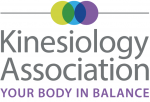In recent decades, while life expectancy has risen, healthy life expectancy has unfortunately declined. This means that although we may live longer, our quality of life during those years may not be as optimal. A concerning trend highlighted by ‘The Guardian in March 2019 pointed out a decline in life expectancy in England and Wales, signalling a need for action. This decline in quality of life is further emphasised by the prevalent use of prescription medications among older adults, with a significant portion taking multiple drugs concurrently. These medications, while intended to treat various ailments, often come with a host of side effects and potential interactions, leading to complications.
However, there is hope. We can work towards a healthier future by prioritising our health and making proactive choices. Here are some key strategies to consider:
1. Start Early: The earlier we adopt healthy habits, the better. Diet and lifestyle choices are crucial in shaping our health outcomes, regardless of genetic predispositions. Introducing nutritious foods and regular exercise into our early routines can lay a strong foundation for healthy ageing.
2. Focus on Nutrition: Nutrition is vital to well-being. Research has shown that dietary interventions can have profound effects, including reversing conditions such as type 2 diabetes and cognitive decline. By prioritising natural, nutrient-dense foods over processed options, we can fuel our bodies with the essential nutrients they need to thrive.
3. Prioritise Real Food: Maintaining muscle mass and metabolic health becomes increasingly important as we age. Whole foods provide the necessary nutrients to support these processes, while processed foods often lack essential vitamins and minerals. We can nourish our bodies and support healthy ageing by opting for foods in their natural state – such as fruits, vegetables, lean proteins, and whole grains.
4. Address Malnutrition and Malabsorption: Malnutrition and malabsorption are common concerns among older adults, particularly those living alone or in residential care homes. These issues can stem from a variety of factors, including decreased appetite, dental problems, and medication side effects. By prioritising nutrient-rich foods and seeking medical guidance when needed, we can mitigate these risks and support optimal health.
5. Consider Supplementation: In some cases, supplementation may be necessary to address nutrient deficiencies or support specific health goals. Essential nutrients such as vitamin D, omega-3 fatty acids, and iron are essential for overall health and may require supplementation, especially in older adults.
6. Stay Active: Regular physical activity is essential for maintaining mobility, strength, and overall well-being as we age. Whether through daily walks, strength training, or group fitness classes, finding enjoyable ways to stay active can support healthy ageing and enhance the quality of life.
7. Advocate for Yourself: Finally, advocating for your health and well-being is essential. This may involve seeking out knowledgeable healthcare providers, staying informed about current research and recommendations, and actively participating in decisions regarding your care.
In conclusion, prioritising your health and making positive changes is never too late. By adopting a proactive approach to nutrition, lifestyle, and overall well-being, we can support healthy ageing and enjoy a higher quality of life later.
If there is anything that has come up for you as a result of this blog, I warmly invite you to book a free 30-minute discovery call to see if a personalised nutrition and lifestyle plan might help. You can book yourself directly into my diary by clicking right here.
Reference: Robert M. Russell, Factors in Aging that Effect the Bioavailability of Nutrients, The Journal of Nutrition, Volume 131, Issue 4, April 2001, Pages 1359S–1361S Link: https://academic.oup.com/jn/article/131/4/1359S/4686879










